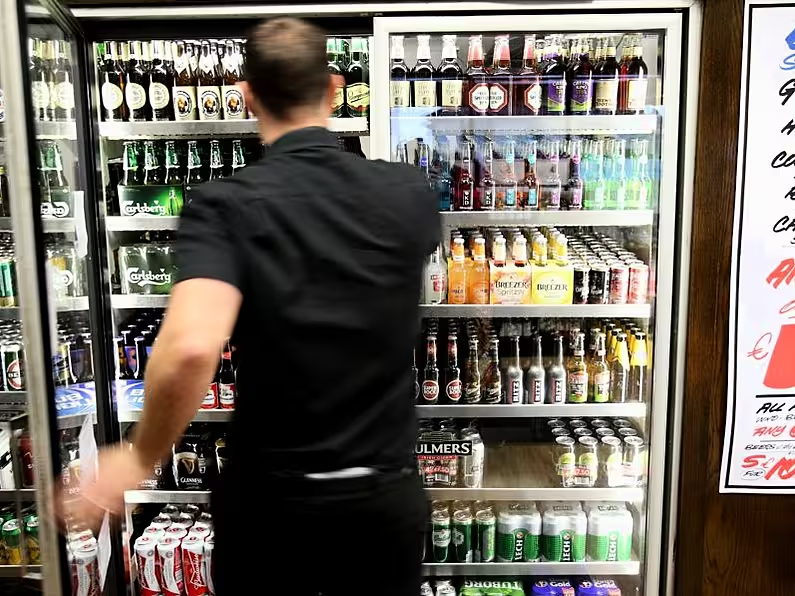James Cox
New minimum unit pricing on alcohol is set to come into effect from today in a bid to reduce alcohol consumption across society.
Here is everything you need to know about the new pricing in force from Tuesday, January 4th.
Who is minimum unit pricing targeted at?
It is hoped it will reduce alcohol consumption across all groups.
However, the new law is particularly targeted at heavier and younger drinkers, the cohorts considered to be consuming the most cheap alcohol.
The move has been welcomed by Alcohol Action Ireland.
What does it mean?
Minimum unit pricing, as set out in the Public Health Alcohol Act (2018), is a means of establishing a mandatory floor price per unit of alcohol. This means alcohol cannot be sold to the public below a set cost.
It will mainly affect alcohol sold in off licences, shops and supermarkets.
How will it change the price of beer, wine and spirits?
The minimum price will be based on the number of grams of alcohol, with one gram costing at least 10 cent.
In Ireland, a standard drink contains 10 grams of alcohol, meaning the minimum cost of a standard drink will be €1. The vast majority of drinks in pubs, clubs and restaurants already cost more than this.
A pub measure of spirits (35.5ml), a small glass of wine (12.5 per cent volume), and a half pint of normal beer are all standard drinks.
The price of premium alcohol will remain largely unaffected, but the changes will be evident in cheaper alcohol and promotional deals.
A 12.5 per cent bottle of wine has 7.4 standard drinks and will cost at least €7.40 from January 4th. A 500ml can of beer (4.3 per cent) will cost a minimum of €1.70 while a 700ml bottle of spirits (40 per cent) will cost a minimum of €22.09.
What do the experts say?
The World Health Organisation (WHO) states there is "robust evidence base" supporting the effectiveness of minimum unit pricing on alcohol, particularly among the heaviest drinkers.
In its 'Preventing Harmful Alcohol Use', the Organisation for Economic Co-operation and Development (OECD), using its long-term economic model, said the macroeconomic burden of alcohol is lowering Ireland’s gross domestic product by 1.88 per cent annually.
The Department of Public Expenditure and Reform estimates the societal costs of alcohol could be as high as €3.7 billion annually, with this estimate factoring in costs across healthcare, criminal justice and social protection measures.
In 2019, on average, every person in Ireland aged 15 and over drank 10.8 litres of pure alcohol a year – the equivalent of either 40 bottles of vodka, 113 bottles of wine or 436 pints of beer.
Research by the Sheffield Alcohol Research Group found that when minimum unit pricing on alcohol is introduced in Ireland, alcohol consumption is expected to reduce by almost 9 per cent overall.
The heaviest drinkers are expected to reduce their alcohol consumption by 15 per cent, while people who already drink within the low-risk alcohol guidelines are expected to drink 3 per cent less.
Supermarket prices
A supermarket price survey from the Irish Independent found a 24-pack of Budweiser 500ml cans will increase from €18 to a minimum of €40.71, equating to a rise from 75c per can to €1.70.
Aldi's Corley's Gin 700ml, which is currently priced at €13.99, will rise to €20.71. Also in Aldi, a Galahad Export 12-pack of beer will rise from €8.79 to at least €18.93.
Last week, a 700ml bottle of Smirnoff vodka (37.5 per cent) was priced at €15 in Lidl, this will increase to at least €20.71 from tomorrow.
A 700ml bottle of Gordon's Dry Gin in Lidl (now price at €15) will rise to €20.71.












